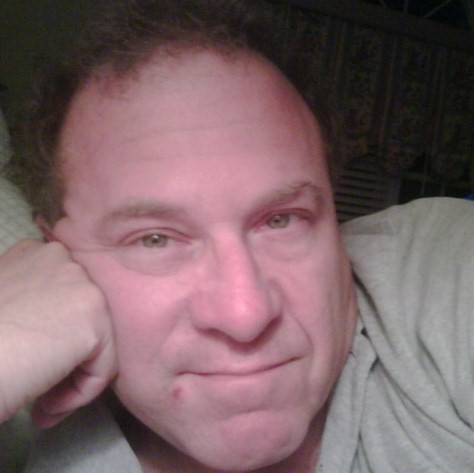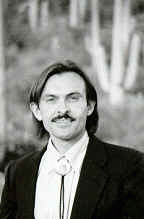Broadcast 4/4/2010 at 3:30 PM EDT (23 Listens, 38 Downloads, 1899 Itunes)
Rob Kall Futurehealth Radio Show Podcast
Check out More Podcasts
|

Listen
|

iTunes
|
|

Download
|
|
|
Copyright © FutureHealth Administrator, All Rights Reserved. Do not duplicate or post on youtube or other sites without express permission.
Creative commons permissions for this site do not apply to audio content or transcripts of audio content.
|
Lewis
Mehl-Madrona, MD, PhD, MPhil, is Director of the Psychopharmacology
Program at Argosy University Hawai'i, where he is also Associate
Professor of Psychology. He is an adjunct professor of anthropology at
Johnson State College in Vermont and is Education Director for the
Coyote Institute for Studies of Change and Transformation, also in
Vermont, USA. He is the author of Coyote Medicine, Coyote Healing,
Coyote Wisdom, Narrative Medicine, and the soon to be released (July
2009), Narrative Psychiatry: healing mind and brain in a social world.Â
Lewis is a graduate of Stanford University School of Medicine, the
Psychological Studies Institute in Palo Alto, and Massey University in
Palmerston North, New Zealand. He is American board certified in family
medicine and in psychiatry.
www.mehl-madrona.com
New book coming out: Healing the mind
through the power of story-- the promise of Narrative Psychiatry-- out
by June.
Week at Kripalu April 29- May 7 Coyote healing weekend
5
day Cherokee body work intensive
narrative and story tie his
work together
Brian Boyd on the origin of fiction.  How telling
stories provide survival value.
It turns out that neuroscience is
catching up with indigenous people-- that the default mode of the brain
is telling stories.
Neuroscientist at U. Montreal, tells how
story of Little Red Riding hood has tremendously more information than a
20 digit number-- and which is easier to remember?
If we can
ground narrative into the brain, by seeing how the brain is completely
created for story, then we have the basis for narrative psychiatry.
Story is a better way for explaining diagnosis than DSM.
When
the story of their life encompasses all their symptoms and matches up to
their pet scan, one doesn't need to have all those diagnoses. It's
enough to have their stories and see how they match up with their brain
scan.
Example-- young man could qualify for Autism, OCD
diagnosis,
Decided to collect smelly garbage-- mother is a
"recycling nut" and he's angry with her. His story becomes he's a
collector of the worst smelling garbage and wants to put it all over
their house and evolves into an obsessive collector of the worst
smelling garbage. On PET scan his anterior cyngulate gyrus lights up and
shows frontal lobe dysfunciton. If we change his story his brain will
function better, If we teach him to "story up" his life better.Â
Look
at people with autism or schizophrenia, they are poor at telling
stories of their experience and part of brain that is involved in
telling stories is low functioning for them...
Finnish Psychosis
project-- seen that if you teach autistics or schizophrenics to tell
better stories, they function better. I think it's neuroplasticity.
Teaching
people to story up their experience is a good way to help people with
autism or schizophrenia
Story part of brain-- medial prefrontal
cortex, dorsolateral pre-frontal cortex that generates associations.
Orbital
prefrontal cortex eliminates associations that don't fit.
Final
version of story includes rich emotion and content.
Autistics
include so much extraneous detail that no-one wants to hear their
stories. Loosening of association, circumstantiality...
Top down
and bottom up in story... narrative that's not too dense and not too
sparse-- just right. This is where the social aspect of brain comes into
play. We have to have a theory of mind to tell a good story. We have to
anticipate how other people will react to our story. The more audience
appeal for your story, the more survival value for you.
All
cultures have a basic structure which have to do with belief, desire and
intent. People learn to interpret behavior in terms of those structure.
Brain is socially constructed; brains are social organs. Social
relationships change brain structure. Dramatic life changing experience
changes the structure of our brains. Our brains are constantly mediated
by our social relationships.
Shift from google to facebook
dominance, from information age to bottom up connection age. . We crave
social connection.
The people we are close to we are no longer
geographically near. The people I care most about might not be in the
same city-- but I want to stay connected with them. i want to continue
to allow them to shape my brain and for me to shape their brain. Brains
are like neurons in a larger social brain and our facebook relations are
the synaptic connections that are part of this larger social brain. We
need to be speaking community.
Imaging studies done on
perceptions. If you look at the neuroimaging of how people perceive.
Nesbitt doctored up underwater movies, making one fish bigger, faster
more colorful. Asians used Right temporal occipital cortex. Americans
used left temporal occipital cortex. Asians remembered the background.
The americans remembered the Fish.
Right hemisphere is more
holistic, sees background and relationships first, and potentially not
even notice the big fish. It doesn't add anything to the connectedness
to everything.
In the US, we're all about the big fish-- left
visual processing focuses on biggest, fastest, most colorful-- the
foreground.
Indigenous cultures are much more right hemisphere
focusing-- on background and inter-relationships.
Indigenous
people have different brain structure-- the world that they grow up in
encourages a different way of perceiving-- a right hemisphere background
approach...
We know that reading dramatically changed the brain.
There's no gene for reading. If we look at cultures that are entirely
existing in an oral tradition they have a very different brain than what
we see in a written tradition. Oral tradition has tremendous capacity
for detailed memories.
Polynesians can remember long chants that
allow them to navigate vast stretches of ocean.
Wolf, at Tufts--
computer is producing a new brain
Wouldn't it be great if we could use them all-- web
brains, reading brains, story brains, totally immersed in nature
brains-- and toggle between them as needed?
Healing is a
reorganization of state-- transformation of an emergent social network.
So I've been working with healing with community, which is an indigenous
idea-- bringing people together. That's what ceremony does-- allows
relationships among people to transform and between people and spiritual
beings and natural objects-- forests and rivers. Holistic perception
makes it easier to hear words of mountains and rocks-- you have more
permission to still your mind, so you can hear spirits and objects....
Mainstream spirituality is more linear emphasis. I heard a lecture from
the bishop of Arizona, saying that miracles and sightings of the Virgin
Mary were things of the past, that they didn't happen anymore. But
there was a lot of spirit communication taking place in biblical times.
From a native american point of you it made me feel he had a dead
religion because what kind of spirituality is there where you can't talk
to spirits and spirits can't talk to you.
In Lakota-- creator (
that which moves) is said to live at the other end of the milky way.Â
The creator sets things in motion but isn't sitting on a throne
controlling everything. There are a lot of spirits and it's up to us. We
have a lot of free will. We can anger the spirits and they work against
us or propitiate the spirits and they'll work with us.
In
Lakota cosmology, the chief local spirit is the sun. None of us are here
without the sun. The Lakota understood that the sun was essential to
give us life. Then other spirits-- the moon, the earth, water-- all of
the sacred beings can be seen. It seems like a really logical
spirituality.
If you want to have help from the sun, you need to put
on a good show, tell a good story-- which is what the sun dances are
about.
Integral mental health conference-- 700 attendees agreed
Mental health is not working in the US.
New approach-- human
relationships-- the healing power of relationships instead of pills.
Relational
mind and community as the unit of study for mental health. If someone
is suffering then we have to restructure from the bottom up,
restructuring the environment.
I love neurofeedback-- it's about
people learning how to change their brains and get their brains to work
in better ways.
I follow the James Lynch approach in that it allows
people how the stories they tell themselves affect their heart rate,
blood pressure, etc.
The stories that we tell ourselves are
changing our physiology every time we tell them. If you can see that in
real time, you can begin to draft better stories.
Vermont
story: How rabbit got to look like he does.
story starts in the
day when animals had to take on the roles of people, back in the day
when annimals were still being sorted out. Loose cap, like a trickster--
Cherokee have rabbit, lakota have coyote. He loves rabbit because
rabbit has such good heart and rabbit's job is to help people lost in
the forest. In those days, rabbits legs were equal length... and this is
a story about how got to look like he does today.
Now that you've enjoyed this free podcast, consider investing in these low cost digital recordings of lectures and workshops on CDs and DVDs
Stories
and Transformation   SKU# AG-P-030  Â
Futurehealth Plenary Talk Lewis Mehl-Medrona
No guidelines, algorithms, or principles exist for sudden, dramatic
transformations in the lives of individuals, communities, or cultures.
We may be able to predict when transformation is about to occur, but its
directions are outside of our grasp. In this presentation, we will
consider stories as a source of wisdom for how to transform. Aboriginal
culture is replete with stories of spiritual and other transformations,
the repetition of which, installs in the listener an intuitive sense
for how to proceed and the belief that sudden transformation, even
against all odds, is possible. (Specifications: MP3, 20 mins) $7
States
of Brain Mind; States of Healing; Speaking the Language of Shamans
  SKU# AE-W2-037  Â
Futurehealth Workshop by Lewis Mehl Madrona (Specifications: MP3, 2
hours)Â $25
Shaman's
Mind, Shaman's Work, Shaman's Dialogue   SKU# AG-W2-023  Â
Futurehealth Workshop Lewis Mehl-Medrona
In this workshop, we will explore the shamans (indigenous or aboriginal
healers) take on mind, consciousness, health, and illness. We will
compare this aboriginal way of gaining knowledge with European-derived
cultures? insistence upon external expertise that is codified in
categories and algorithms of practice. Many Western mindsets would view
this story about mind as preposterous, invalid, or even psychotic, yet
shamans quietly go about their work in communities where there
reputation and livelihood is based upon sufficient success as to be
noticed. We will close by discussing what we can learn from shamanic
practice to enrich our own practices. (Specifications: MP3, 2 hours) $25
, More by Dr. Mehl-Madrona:
Size: 32,653,060 -- 1 hrs, 8 min, 1 sec
One theme has run through my work for the past 40 plus years-- a desire to play a role in waking people up, raising their consciousness and empowering them.
I was the organizer founder of the Winter Brain, Optimal Functioning and Positive Psychology and StoryCon Meetings and president of Futurehealth, Inc., with interests in (more...)








